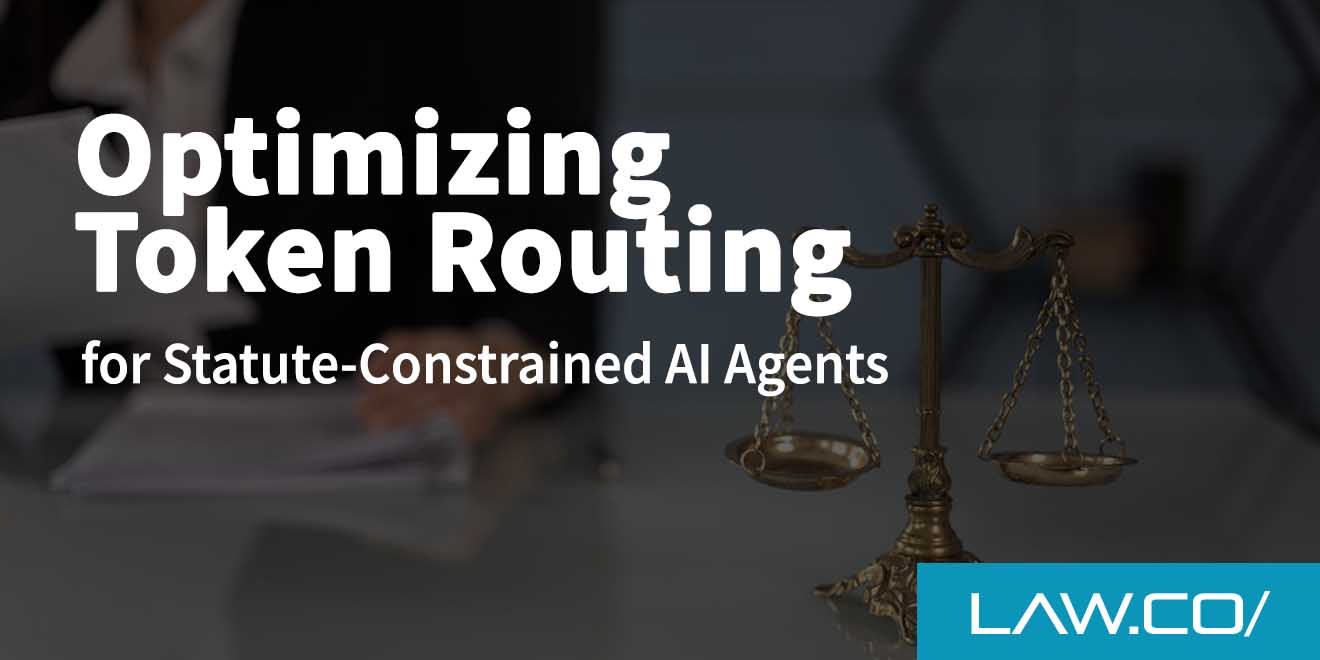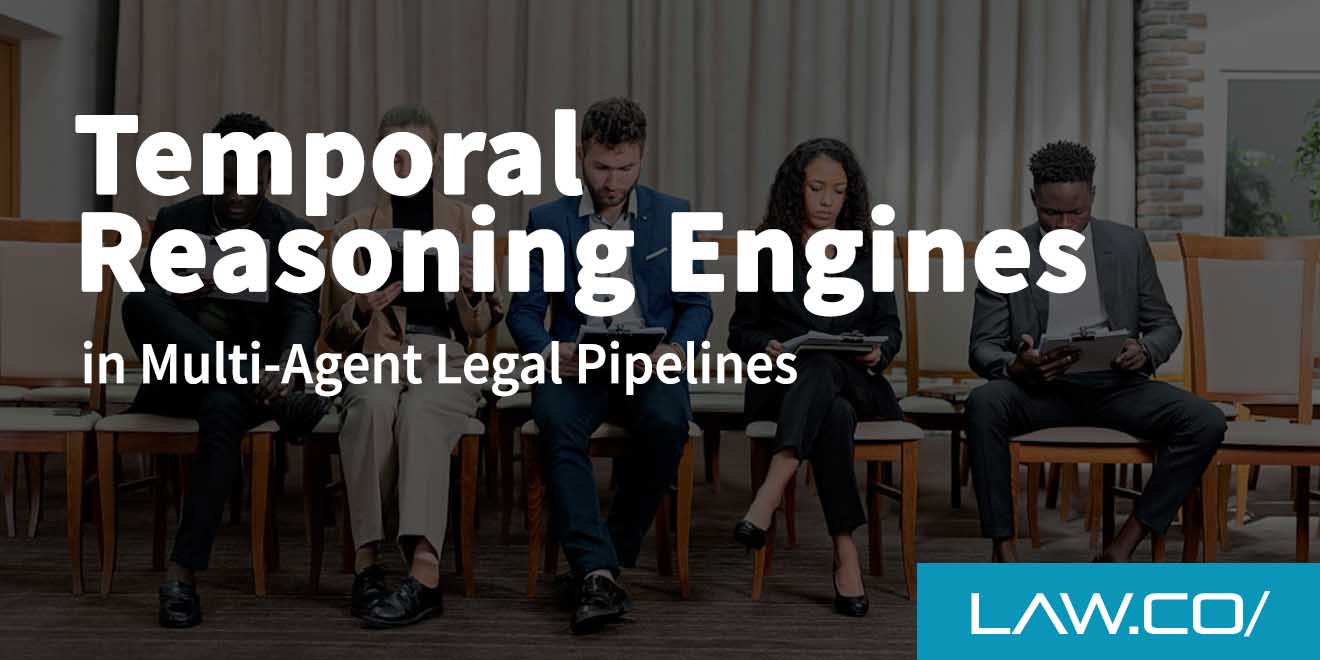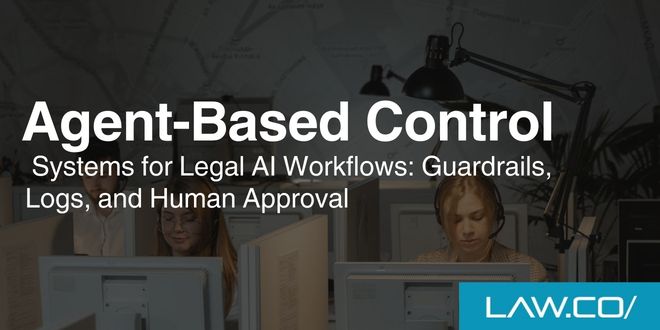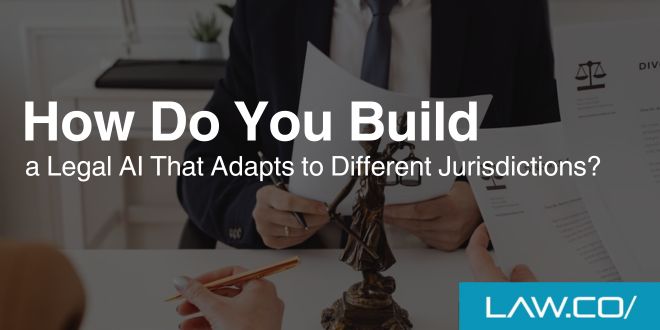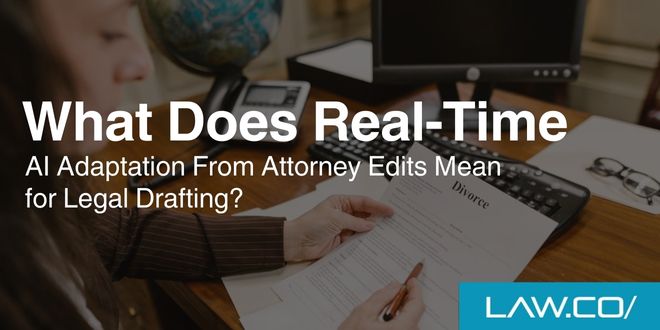

AI for Legal Research: Capabilities, Limitations, and Best Practices for Law Firms
When you went to law school, did you ever think that you would eventually be replaced by a robot?Don't worry.We're not at that point. At least not yet.But we are at the point where artificial intelligence (AI) is advanced enough to make a genuine impact on your career – and if you truly understand and harness the full potential of AI tools, that impact should be a positive one.At Law.co, we've been building up a knowledge base on different types of AI tools that are not only appropriate but empowering for law firms. And today, we're going to be taking a closer look at AI for legal research.What are the capabilities and limitations of AI for legal research? And what best practices should law firms be following if they want to make the most of this technology without exposing themselves to unnecessary risk or excessive downsides?
The Promise of AI for Law Firms

There are countless ways in which AI can be applied in a business setting, but currently, most law firms are looking to generative and extractive AI platforms. These are some of the newest and most exciting types of AI tools, and they have a broad range of different capabilities.Generative AI tools use large language models (LLMs) to generate text to fulfill the requests of user prompts; law firms can use these types of tools to summarize complex concepts, review existing documents, and yes, you guessed it, conduct legal research.AI optimists foretell the following benefits of AI in the legal profession:
- Efficiency. AI isn't necessarily better than the human being at similar tasks, especially if you're comparing it to a human with experience in this industry. However, AI is generally much faster and more efficient. It can often meet or exceed the legal research capabilities of human beings, and do it in the span of a few seconds, rather than taking days. AI isn't perfect, as we'll see, but with something so remarkably fast and efficient on deck, it can instantly transform the productivity of your organization.
- Thoroughness and accuracy. While there are some limitations to what AI can do, if a tool is trained on the right set of data, it can be incredibly thorough and accurate. You don't have to read through all the results yourself; you can simply have an AI tool do the work for you. And, assuming the data it's trained on are accurate, the finished results should be accurate as well.
- Lack of bias. AI bias is an important and complex topic, but in many use cases, we can count on AI to be less biased than a human being. Human beings are corrupted by blind spots and cognitive biases that simply don't apply to a stoic, unconscious machine. If you're looking for a relatively neutral, reliable source, it's hard to find something better than AI.
- Cost savings. Law firm leaders are often excited about the possibilities of saving money with the use of AI. You'll need to pay for access to the best generative AI tools currently on the market, but this can be a remarkably powerful investment. Collectively, your lawyers can save hundreds of man hours on legal research, ultimately allowing the AI tool to pay for itself.
- Personalized direction. Many lawyers especially appreciate AI as a legal research tool because it affords the possibility of personalized direction. You can have human-like conversations with generative AI tools and use creative prompts to get exactly the results you want. No two people are going to use generative AI in exactly the same ways, and that’s ultimately a good thing.
The Need for Legal Research
Legal research is a strict necessity for most cases.As your lawyers prepare for each case, they'll need to review things like:
- Statutes. You need to be familiar with the legal statutes in place that are relevant to your specific case. You may also need to look up statutes in different areas.
- Regulations. Regulations passed by government agencies may also be relevant.
- Practice areas. You may need to do research on different practice areas, depending on existing levels of knowledge and familiarity.
- Jurisdictions. You’ll need to examine relevant jurisdictions when preparing for a case as well.
- Case law. Case law is one of the most important areas of legal research, as it establishes historical precedent and can hypothetically make or break your case.
- Other context. Lawyers also need to be ready to research other miscellaneous topics to get more context or put together a more compelling case.
Together, these areas of fact-based legal research establish a strong foundation on which a case can be built.Historically, legal research has been one of the most time-consuming aspects of the legal profession. But with all the promise of AI tools for law firms, lawyers may be in a position to make light work of this due diligence.That's an exciting notion.But it's not all upsides.
The Limitations of AI for Legal Research

There are some serious limitations for what AI can do in the world of legal research.Let's look at some of these limitations and drawbacks, and how they should shape your usage of these popular and powerful AI tools.
- Scope and accessibility problems. Different generative AI tools operate on different frameworks and use different datasets to serve as knowledge bases. Depending on the data available to the tool in question, it may or may not be capable of answering your questions or providing you with accurate information. For example, according to OpenAI, “GPT-4 generally lacks knowledge of events that have occurred after the vast majority of its data cuts off (September 2021).” Some generative AI tools don't even have access to the internet. If you're going to depend on AI tools to study past historical cases or review recent legislation, you need to make sure those tools are completely up to date and capable of accessing this information in real-time.
- Errors and accuracy concerns. Lawyer Steven A. Schwartz recently earned an unfortunate new nickname for himself – “the ChatGPT lawyer” – after excessively relying on ChatGPT for his own legal research. He used ChatGPT to generate a list of historical cases relevant to his current client’s personal injury lawsuit, and unfortunately, some of the cases it recommended didn't actually exist. Schwartz would later say that he didn't know that ChatGPT was capable of providing false information; if asked about whether these cases were real, the generative AI tool would respond affirmatively. Much of the information that modern generative AI tools provide you is going to be perfectly accurate and reliable, but you can't take this for granted. It's essential to have a human being verify this information from personal experience or with secondary sources.
- Inability to exercise human judgment. Because generative AI tools often talk like humans, it's easy to mistake them for being capable of human-like thought. But in reality, no AI tool is capable of exercising human judgment. It's not always going to be good at differentiating between relevant and irrelevant details, and it's not going to be able to give you genuine perspectives about how these pieces of information can be used in your current case. For that, you're still going to need human beings – and probably for the foreseeable future.
- Inability to form opinions. Similarly, generative AI cannot form an opinion. Occasionally, you can get it to evaluate certain topics or ideas from the collective perspective of experts; for example, generative AI will tell you that most scientists agree that general relativity is a solid theory in physics. But even this is not perfectly reliable.
- Difficulty with logic and reasoning. By now, you've probably seen at least a few exercises that demonstrate just how bad ChatGPT, and other generative AI tools are at even the most basic math and logic problems. Tools that were trained primarily on using natural language tend to fall short in these categories; human beings are still uniquely exceptional at being able to tackle a wide range of cognitive tasks in a competent way. If you're looking for ChatGPT to tell you whether your case is persuasive or identify logical flaws in your arguments, you're making a mistake. And if you need a tool to help you with math or logic, consider using an AI tool that’s specifically dedicated to that purpose.
- Technological dependency. It's also worth mentioning that relying too heavily on generative AI tools can lead to a kind of technological dependency. Just as people who rely exclusively on digital GPS systems eventually suffer from deteriorated navigational abilities, lawyers who only rely on AI for their legal research are likely to see their own skills diminish over time. Accordingly, AI should only be used as a supplement, rather than as a primary or exclusive source of legal research.
- Ethical concerns. Many experts have raised ethical concerns about the role of AI in legal research and other aspects of the law. For example, if you use an AI tool that feeds you information that leads you to a detrimental outcome for your client, are you liable for the damages? Is the AI tool liable for the damages? Ethics in AI are still a massive gray area, and experts in countless industries are trying to figure out what's next. In the meantime, tread with caution, and avoid delegating too many responsibilities to these glorified machines.
Best Practices for Using AI for Legal Research
AI has some huge advantages for your law firm.But it's not perfect at legal research.And if you're not careful, misusing these tools could harm your reputation permanently.These best practices for using AI in legal research can help protect you:
- Start with the right mindset. People tend to think that AI and similarly advanced technologies create or destroy jobs; but in reality, they typically transform them. That's because AI tends to be incredibly good at highly specialized tasks, but lackluster when it comes to cross-disciplinary aptitude or “human”-like thinking. If you're going to adopt AI into your law firm, treat it as a supplementary tool, rather than a replacement for any existing tools or people in your organization. When used appropriately, AI is a time saver and a force multiplier – not a magic wand or an omnipotent automaton.
- Shop and compare. There are many generative AI tools on the market, and you're probably familiar with a few of them by name. Many of the available tools to law firms are based on the same smattering of large language models (LLMs), but they have different levels of access, different features, and different levels of competency. Make sure you shop around and compare these tools to each other, so you can choose the best fit for your law firm.
- Consider building your own tool. Better yet, consider building a tool of your own. If you're in charge of constructing the tool, feeding it data, and training it, you'll be in a much better position to attain the tool you need – and you'll have a much better understanding of its capabilities and weaknesses. Hiring a custom development firm could be a massively beneficial investment.
- Keep humans in charge. Human beings should be reviewing data and making decisions at every step of the legal research process. It's fine for those people to use AI tools, and it's even fine for them to use AI tools as a primary channel for research. But at the end of the day, those human beings are responsible for supervising, fact checking, and reviewing those tools for accuracy and relevance.
- Avoid technological dependency. Minimize the risk of technological dependency by creating protocols for your human employees to remain consistent in their legal research. That could mean leveraging a wide range of different research tools, instituting new checks and balances within your teams, or just holding people accountable to the information they generate and use.
- Master the basics of prompt engineering. Prompt engineering is the strategy of deliberately creating and tuning prompts for a specific purpose. This is important, because generative AI tools aren't always perfect at interpreting your needs or providing you with relevant information. The better you understand generative AI, and the more time and thought you put into your prompts, the better results you're going to see. With practice, your best lawyers and paralegals will become adept at feeding generative AI tools exactly what’s necessary to obtain the requisite outputs.
The Future of AI in Legal Research

It's important to recognize that this article was written with the current state of generative AI in mind. This is a new and rapidly advancing field, so it's hard to tell what's on the horizon for the next year, let alone the next decade. In a few years, AI may be so advanced that it puts even our best human lawyers to shame (like how Deep Blue can beat even our best human chess players). Or it might be only marginally better than it is now. The future is opaque.No matter what, it’s likely that AI governance is going to become a more important consideration for law firms as they weigh the cons and risks, as well as businesses and organizations across most industries. And it's very likely that your biggest law firm competitors are going to integrate generative AI into their legal research proceedings.Because of this, it's your responsibility to better understand the role of AI in legal research so you can integrate it ethically, productively, and consistently.Are you searching for an AI-based legal research tool that can power your law firm from within?Or do you need advice on how to approach the ethics and governance of AI in the legal industry?We have all the experts who can help you. Contact us today for a free consultation!

%201.svg)


